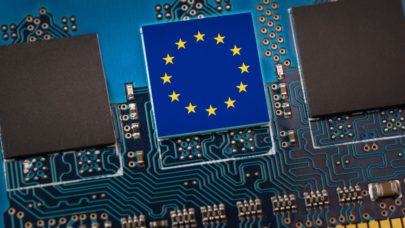
The European Project Creating Extensible, Energy-Efficient RISC-V CPUs
June 28, 2023
Some European researchers are developing open-source RISC-V cores to compete with x86 and Arm, and are relying on only €8 million in funding. Details about the ambitious eProcessor project were shared at the ISC conference in Hamburg, Germany, this week. The conference is a showcase for pan-European high-performance computing projects. Read more…

At ISC, Sustainable Computing Leaders Discuss HPC’s Energy Crossroads
May 30, 2023
In the wake of SC22 last year, HPCwire wrote that “the conference’s eyes had shifted to carbon emissions and energy intensity” rather than the historical Read more…

Closing ISC Keynote by Sterling and Suarez Looks Backward and Forward
May 25, 2023
ISC’s closing keynote this year was given jointly by a pair of distinguished HPC leaders, Thomas Sterling of Indiana University and Estela Suarez of Jülich S Read more…
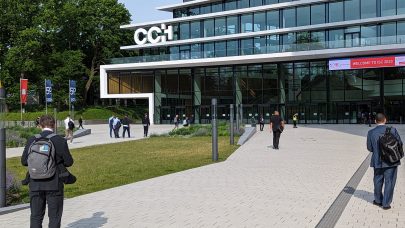
ISC Session Explores Ethics in AI and HPC in the Era of LLMs
May 23, 2023
Jay Lofstead from Sandia National Laboratories and Jakob Luettgau from the University of Tennessee gave a highly audience interactive session on Ethics in AI an Read more…
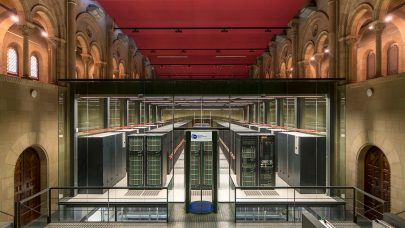
MareNostrum 5 Hits Speed Bumps; Iconic Chapel to Host Quantum Systems
May 23, 2023
MareNostrum 5, the next-generation supercomputer at the Barcelona Supercomputing Center (BSC) and one of EuroHPC’s flagship pre-exascale systems, has had a di Read more…

ISC Keynote: To Reinvent HPC After Moore’s Law, Follow the Money
May 23, 2023
This year’s International Supercomputing Conference (ISC) kicked off yesterday in Hamburg, Germany, with a keynote from Dan Reed, presidential professor at th Read more…
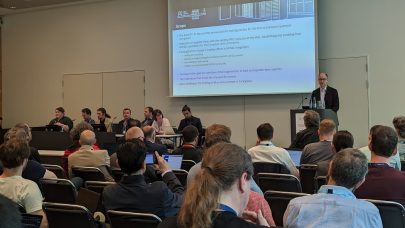
ISC BOF: Euro Quantum Community Tackles HPC-QC Integration, Broad User Access
May 23, 2023
Europe has clearly jumped into the global race to achieve practical quantum, though perhaps a step later (by a year or two) than the U.S. and China. Impressivel Read more…
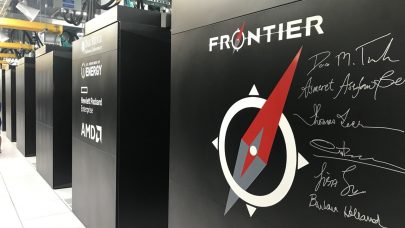
Exascale Frontier Supercomputer Has Passed Formal Acceptance: What That Means
May 22, 2023
Fresh off their third Top500 win for Frontier – now with an 8.4% higher Linpack score – the HPC team at Oak Ridge National Laboratory had some exciting news to share today. Frontier has passed its acceptance and is taking on grand scientific challenges. “Acceptance of Frontier took place at the... Read more…

- Click Here for More Headlines

Whitepaper
Transforming Industrial and Automotive Manufacturing
In this era, expansion in digital infrastructure capacity is inevitable. Parallel to this, climate change consciousness is also rising, making sustainability a mandatory part of the organization’s functioning. As computing workloads such as AI and HPC continue to surge, so does the energy consumption, posing environmental woes. IT departments within organizations have a crucial role in combating this challenge. They can significantly drive sustainable practices by influencing newer technologies and process adoption that aid in mitigating the effects of climate change.
While buying more sustainable IT solutions is an option, partnering with IT solutions providers, such and Lenovo and Intel, who are committed to sustainability and aiding customers in executing sustainability strategies is likely to be more impactful.
Learn how Lenovo and Intel, through their partnership, are strongly positioned to address this need with their innovations driving energy efficiency and environmental stewardship.
Download Now
Sponsored by Lenovo
Whitepaper
How Direct Liquid Cooling Improves Data Center Energy Efficiency
Data centers are experiencing increasing power consumption, space constraints and cooling demands due to the unprecedented computing power required by today’s chips and servers. HVAC cooling systems consume approximately 40% of a data center’s electricity. These systems traditionally use air conditioning, air handling and fans to cool the data center facility and IT equipment, ultimately resulting in high energy consumption and high carbon emissions. Data centers are moving to direct liquid cooled (DLC) systems to improve cooling efficiency thus lowering their PUE, operating expenses (OPEX) and carbon footprint.
This paper describes how CoolIT Systems (CoolIT) meets the need for improved energy efficiency in data centers and includes case studies that show how CoolIT’s DLC solutions improve energy efficiency, increase rack density, lower OPEX, and enable sustainability programs. CoolIT is the global market and innovation leader in scalable DLC solutions for the world’s most demanding computing environments. CoolIT’s end-to-end solutions meet the rising demand in cooling and the rising demand for energy efficiency.
Download Now
Sponsored by CoolIT
Advanced Scale Career Development & Workforce Enhancement Center
Featured Advanced Scale Jobs:
HPCwire Resource Library
HPCwire Product Showcase
© 2024 HPCwire. All Rights Reserved. A Tabor Communications Publication
HPCwire is a registered trademark of Tabor Communications, Inc. Use of this site is governed by our Terms of Use and Privacy Policy.
Reproduction in whole or in part in any form or medium without express written permission of Tabor Communications, Inc. is prohibited.
























